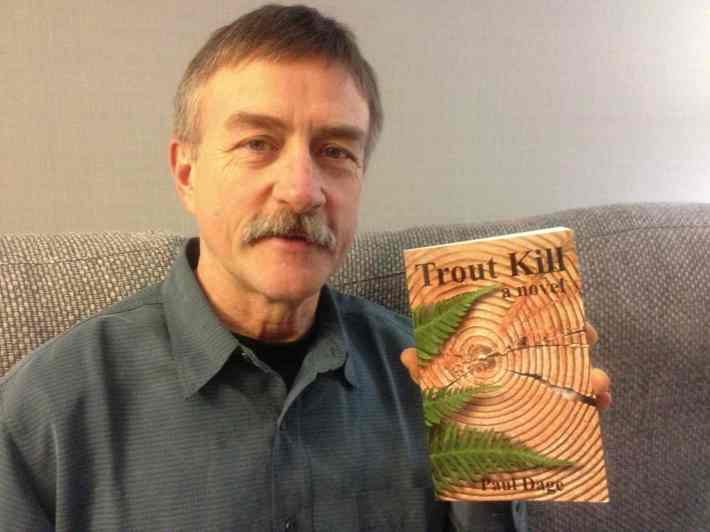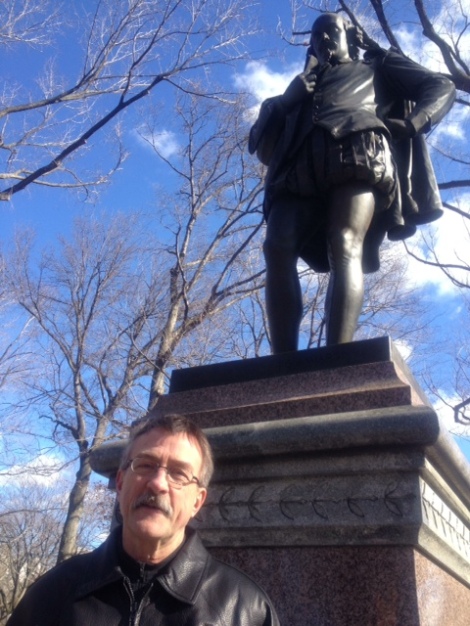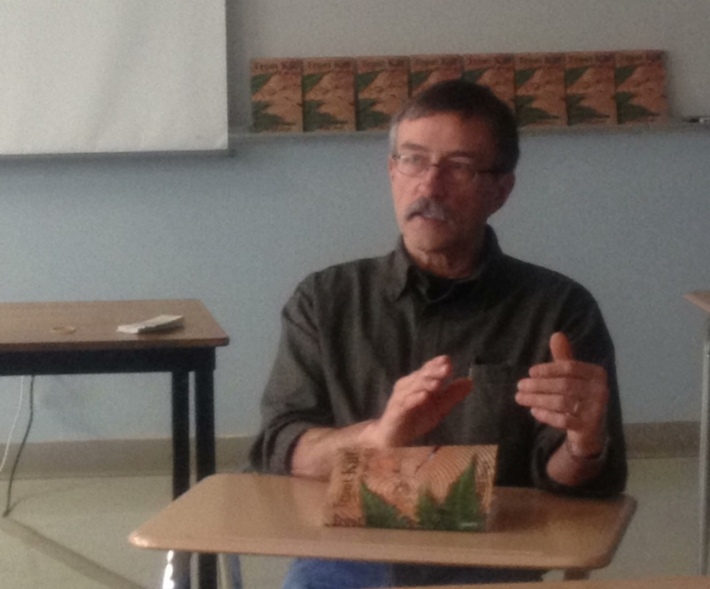In TK, a garden figures quite prominently in the closing chapters. Can you dig it? Of course, gardens are rife with rich metaphorical possibilities, among them the paradox of death and …. Ok, enough with the literary lecture. Besides, in the last part of the novel Eddy’s thoughts do not dwell on paradox as much as they do upon shovels. I’ve come across another TED talk (Thank you, Debra) by a guy in South Central LA, a drug-infested, gansta-ridden, fast-food hood. He wants to resurrect the many abandoned public places with grow-your-own gardens and, hopefully, inspire people to eat real food, not Big Macs and other toxins. “Plant shit,” he says [the shit is metaphorical, of course], and then eat the good food you grow. Hmmm … Perhaps I see possibilities here for the third part of my trilogy, Trout Love, something about what Eddy has “planted” in the garden, and how it [he?] leads to his possible resurrection, and then …. Eddy, what does your garden grow?
Quote of the Day: “I have always thought the actions of men the best interpreters of their thoughts.” John Locke




